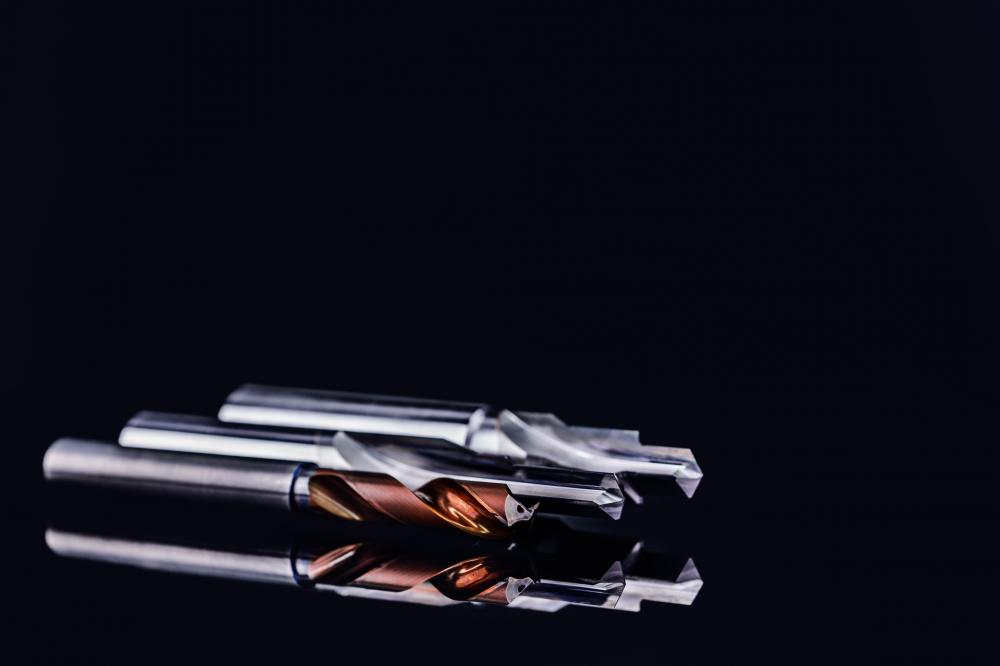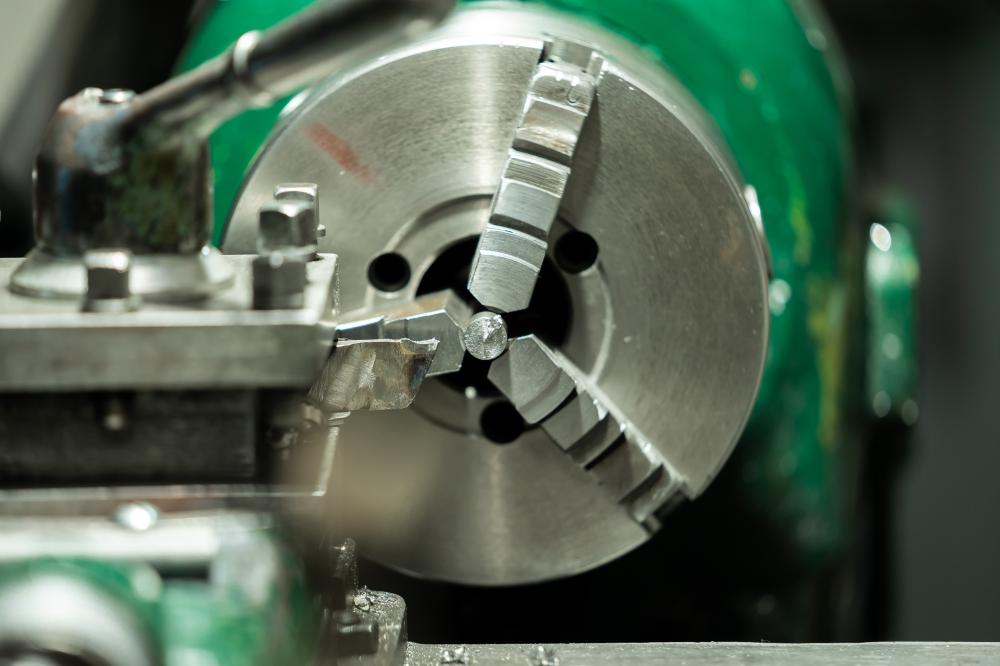Special Tooling

The Importance of Special Tooling
The concept of Special Tooling is pivotal in today’s manufacturing landscape, serving as a cornerstone for precision and efficiency. This specialized equipment is crucial for producing complex components that standard tools simply cannot handle. Industries such as automotive, aerospace, and medical rely heavily on Special Tooling to meet specific design requirements and maintain high standards of quality.
Companies like Stanek Tool & Die Inc. have honed their expertise over decades to deliver exceptional tooling solutions. These custom tools are not just about enhancing production; they are about redefining possibilities in manufacturing. By investing in precise and bespoke tools, manufacturers can significantly reduce waste, improve productivity, and ensure the highest level of quality, thereby gaining a competitive edge in their respective markets.
Tracing the Evolution of Special Tooling
Special Tooling has evolved tremendously from its rudimentary origins to the sophisticated applications seen today. Initially, toolmaking was a rudimentary craft, focusing on basic handcrafting techniques to fashion simple tools for singular purposes. With the advent of industrialization, the demand for more specialized tools grew, pushing the boundaries of what was possible.
In recent decades, technological advancements have propelled this evolution even further. Computer Numerical Control (CNC) machines and 3D printing technology now allow for the creation of extremely intricate and customized Special Tooling. This evolution echoes the rapid pace of technological advancement, making it possible to design tools that can significantly enhance manufacturing processes, which is a testament to human innovation and adaptability in engineering.
Special Tooling in Various Industries
The role of Special Tooling varies significantly across different industries, each demanding unique solutions tailored to their specific needs. In the automotive sector, for example, precision is key, as even minor discrepancies can lead to significant safety issues. Special Tooling enables the precise cutting and shaping of metal components that are integral to vehicle safety and performance.
In the aerospace industry, the stakes are even higher. Special Tooling here must withstand extreme pressures and temperatures, necessitating materials and designs that are robust and innovative. Similarly, in the medical field, tooling must adhere to strict health standards, often requiring intricate designs to support the production of delicate instruments and devices.
Consumer goods also benefit from Special Tooling, particularly when it comes to producing items that require consistency and durability. Custom tools ensure that products meet market standards while allowing manufacturers to innovate continuously.
Innovations in Special Tooling
Innovations in Special Tooling are transforming the landscape of manufacturing, introducing capabilities that were once thought impossible. One of the most significant advancements is the integration of smart technologies into tool design and function. Smart tools can monitor their own performance and optimize their operations in real-time, reducing downtime and enhancing productivity.
Another innovative leap has been in material science, where new composites and alloys are being developed to enhance tool durability and performance. The use of drones and AI-driven design software has further pushed the envelope, enabling the creation of highly specialized tools faster and with greater accuracy.
These advancements not only improve existing processes but also open up new possibilities for manufacturers, allowing them to explore more complex and high-value product lines. Companies that harness these innovations can better position themselves for future growth and sustainability in the industry.
Stanek Tool & Die Inc. continually embraces such innovations, ensuring they deliver cutting-edge solutions to their clients, keeping them at the forefront of manufacturing excellence.
Addressing Challenges in Special Tooling
While the benefits of Special Tooling are numerous, the field is not without its challenges. One major hurdle is the significant upfront investment required to develop and integrate these specialized tools into existing systems. For many businesses, the decision to invest in Special Tooling requires weighing the costs against potential long-term gains.
Additionally, the rapid pace of technological change can make certain tools obsolete quicker than anticipated, necessitating continuous updates and adaptations. This can pose a financial strain and demands a robust strategy for future-proofing investments.
Another challenge lies in the skill gap within the workforce. Operating and maintaining advanced Special Tooling requires a high level of expertise, which is often hard to find in the current labor market. This underscores the importance of ongoing training and development programs to equip employees with necessary skills.
Exploring the Benefits of Special Tooling
Despite challenges, the benefits of Special Tooling are undeniable, offering unparalleled precision and customization. By tailoring tools to specific manufacturing needs, companies can achieve efficiencies that were previously unattainable. The result is often a reduction in production time and material waste, translating to significant cost savings over the long-term.
Moreover, Special Tooling enhances the quality and consistency of the final product. In industries where precision is paramount, such as aerospace and medical, this level of accuracy is essential. These tools also allow companies like Stanek Tool & Die Inc. to offer bespoke solutions that cater to the unique requirements of their diverse clientele, strengthening customer relationships and fostering loyalty.
The ability to quickly adapt to market changes and consumer demands is another crucial benefit. With the increasingly competitive landscape, having the right tools can be the difference between leading the market and lagging behind.
Ultimately, Special Tooling represents a strategic investment in performance, quality, and innovation, helping companies navigate the future with confidence and agility.
Personal Insights and Experiences with Special Tooling
Over my years in the industry, I’ve witnessed firsthand the transformative power of Special Tooling in various manufacturing settings. One memorable project involved designing a tool for a medical device manufacturer that needed to produce precision parts for a revolutionary surgical instrument. The challenge was immense, but the custom tool we developed enabled mass production without compromising on quality.
Such experiences underscore the impact that carefully crafted Special Tooling can have on both production efficiency and product innovation. It’s these successes that reaffirm the necessity of investing in specialized tools, which can often be the unsung heroes in the story of a product’s journey from concept to reality.
The Future of Special Tooling
The future of Special Tooling is both exciting and promising, with technology continuing to advance at an unprecedented rate. As industries evolve, so too will the requirements for specialized tools, likely necessitating even more innovative solutions and materials. The integration of artificial intelligence and machine learning is expected to revolutionize the design and manufacturing process, making it more adaptive and efficient.
Stanek Tool & Die Inc., along with other forward-thinking companies, is poised to lead the charge by leveraging these advancements to meet the ever-changing demands of the market. By staying at the cutting edge of technology, they ensure their clients are equipped with the best tools for success.
Looking ahead, the emphasis on sustainability and environmental responsibility will also steer the development of Special Tooling. New materials and processes will likely be explored to reduce environmental impact while maintaining, or even enhancing, tool performance.
Ultimately, Special Tooling will continue to be an integral part of manufacturing innovation, driving industries forward and enabling new possibilities for creativity and efficiency.

What is the definition of special tooling?
Special tooling refers to custom-designed tools and equipment that are created to meet specific production requirements in manufacturing processes. Unlike standard tools, which are mass-produced and used for general purposes, special tooling is tailored to fit unique tasks, often resulting in improved precision and efficiency. At Stanek Tool & Die Inc., we understand that every project has its own set of challenges, and that’s why we specialize in crafting bespoke tooling solutions that align with our clients’ specific needs. This approach not only enhances production accuracy but also significantly reduces waste and downtime, providing a competitive edge in the market.
Why is special tooling important in manufacturing?
Special tooling is critical in manufacturing because it allows for the creation of complex parts that standard tools cannot effectively produce. In industries such as aerospace and medical, where precision and reliability are paramount, having tools that are tailored to specific processes ensures that every component meets the highest quality standards. For example, in the automotive industry, precision tooling can mean the difference between a vehicle that performs safely and efficiently and one that does not. At Stanek Tool & Die Inc., our focus on delivering high-quality, custom tooling solutions helps manufacturers stay ahead by improving the quality and consistency of their products while also optimizing production processes.
How has special tooling evolved over time?
The evolution of special tooling has been remarkable, moving from basic handcrafted tools to highly sophisticated equipment driven by digital technologies. In the early days, toolmakers relied on their manual skills to create tools tailored for specific tasks. However, with the onset of industrialization, the demand for more specialized and precise equipment grew. Today, advancements such as Computer Numerical Control (CNC) and 3D printing have transformed how special tooling is designed and manufactured. These technologies allow for the production of exceptionally intricate and precise tools, enhancing manufacturing capabilities. At Stanek Tool & Die Inc., we continuously embrace these innovations, ensuring our clients receive the most advanced and effective tooling solutions available.
What industries rely heavily on special tooling and why?
Industries like automotive, aerospace, medical, and consumer goods heavily depend on special tooling for their manufacturing needs. In the automotive sector, precision tooling ensures that components like engine parts and safety features are manufactured with exacting standards to guarantee vehicle performance and safety. The aerospace industry requires tools that can withstand extreme conditions, enabling the production of high-performance aircraft components. Special tooling in the medical field supports the creation of precise instruments and devices that meet stringent health standards. As a provider of custom tooling solutions, Stanek Tool & Die Inc. works across these industries to deliver tools that not only meet but exceed the specific demands of each sector, ensuring quality and innovation in production.
What are some recent innovations in special tooling?
Recent innovations in special tooling have introduced groundbreaking changes to manufacturing processes. One of the most notable advancements is the incorporation of smart technologies, which allow tools to monitor and optimize their own performance in real-time. This leads to reduced downtime and increased productivity. Additionally, advancements in material science have resulted in the development of new composites and alloys that enhance tool durability and functionality. At Stanek Tool & Die Inc., we leverage these innovations to provide cutting-edge solutions to our clients, enabling them to explore new manufacturing possibilities and maintain a competitive advantage.
What challenges do companies face with special tooling, and how can they be addressed?
One of the primary challenges with special tooling is the significant initial investment required, which can be a barrier for many businesses. It’s crucial to assess the long-term benefits against the upfront costs to make informed decisions. Moreover, the rapid pace of technological advancements can render some tools obsolete quickly, necessitating frequent updates. Companies must adopt strategies for future-proofing their investments, such as continuous upgrades and training programs for their workforce. At Stanek Tool & Die Inc., we not only provide cutting-edge tooling solutions but also offer consultation to help our clients navigate these challenges effectively, ensuring their investment in special tooling delivers sustained value and growth.
Resources
- National Institute of Standards and Technology (NIST) – NIST promotes U.S. innovation and industrial competitiveness by advancing measurement science, standards, and technology.
- NASA – The National Aeronautics and Space Administration conducts space exploration and research in various scientific fields.
- American Society of Mechanical Engineers (ASME) – ASME is a professional engineering organization that promotes the art, science, and practice of multidisciplinary engineering and allied sciences around the globe.
- Indian Machine Tool Manufacturers’ Association (IMTMA) – IMTMA is the sole voice of the Indian machine tool industry, supporting its development and promoting competitiveness in the global market.
- Aerospace Industries Association (AIA) – AIA advocates for policies and programs that strengthen U.S. aerospace manufacturing and promote innovation in the industry.
